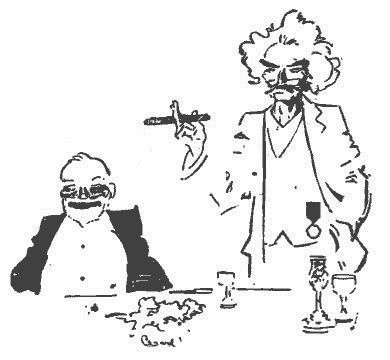 Before there was the “empire of bases” there was classical imperialism with its empire of colonies. Some of the US elite (political, cultural, and financial), from the Mugwumps to Mark Twain to billionaire (in current dollars) Andrew Carnegie, energetically lobbied for the rejection of this policy.
Before there was the “empire of bases” there was classical imperialism with its empire of colonies. Some of the US elite (political, cultural, and financial), from the Mugwumps to Mark Twain to billionaire (in current dollars) Andrew Carnegie, energetically lobbied for the rejection of this policy.
How long will today’s elite tolerate a policy of corporatist military kleptocracy?
Eleven days ago VP Cheney, speaking at a World Affairs Council event in Los Angeles, described the Bushies’ plan to expand the empire of bases in preparation for decades of war. Cheney claimed that this is necessary due to the war on terrorism, but it’s actually the same plan that he and other Bushies signed on to in 1997, when the US was still aiding international jihad. Yesterday at the World Economic Forum in Switzerland he presented a “conciliatory” version of the speech but, in the word’s of Newsweek‘s Fareed Zakaria, “the speech fell flat”:
“You see, a funny thing has happened around the world over the past two years. While the war on terrorism has dominated headlines, the great engine of globalization has kept moving, rewarding some, punishing others, but always keeping up the pressure by increasing human contact, communication and competition. For almost every country today, its primary struggle centers on globalization issues—growth, poverty eradication, disease prevention, education, urbanization, the preservation of identity.
“On all these, America is now largely silent. ‘It’s not that we don’t worry about terrorism,’ a head of government (of a pro-American country) said to me. But for him, as for other leaders, it’s not how he sees the world: ‘I have to grapple with a different set of issues. And I have the feeling that the United States has gone off into its own universe and cannot hear or say anything to me about my problems.’ There is a disconnect between America and the world.
“Of all the leaders who attended this meeting, no one could be more concerned with terrorists than President Musharraf of Pakistan. They have, after all, repeatedly threatened his life. Yet his schedule of private meetings, which were mainly with businessmen, reveal his priorities: investment, growth and development. Turkey has recently suffered terrorist attacks. But Prime Minister Erdogan wanted to impress on his audience Turkey’s determination to meet the European Union’s criteria for membership. Both leaders are showing flexibility on longstanding political disputes (Kashmir and Cyprus) because they realize that these are obstacles to their most important goal: modernization. …
“Developing nations that once feared globalization are beginning to learn how to use it to their advantage—sometimes ganging up during trade negotiations. Others cleverly combine populist measures with pro-growth policies. Thus Vladimir Putin jails oligarchs, yet opens up parts of Russia’s economy. Brazil’s Lula and Thailand’s Thaksin speak of solidarity with the people even as they liberalize the economy. Most important, China is gaming the global capitalist system to its benefit—devoting immense resources and brainpower to its negotiations on trade, commerce and business law.
“While Washington worries about traditional problems of empire—disorder on the periphery—there is a new globalizing world slowly taking shape, in search of leadership.”
At the same meeting, billionaire George Soros said, “Under the pretence of waging a war on terror, Bush embarked on forcing US supremacy on the world,” and promised to add to the $US12.5 million he’s already spent on the anti-Bush campaign.





